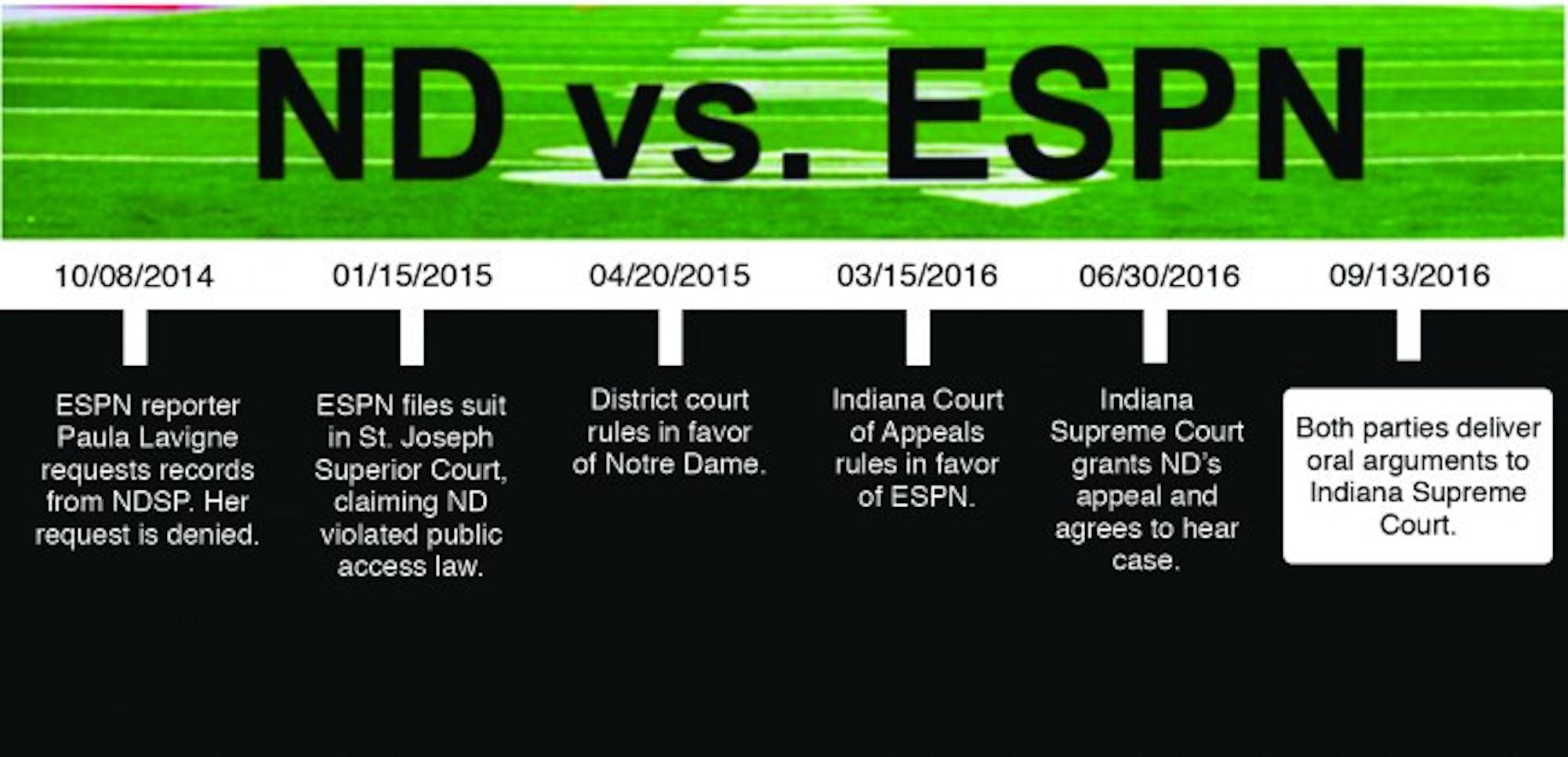The Supreme Court of Indiana heard arguments from attorneys representing Notre Dame and ESPN on Tuesday, the latest development in an ongoing case hinging on the status of Notre Dame Security Police (NDSP) as a public or private agency.
Like police departments across the state, NDSP responds to, investigates, interrogates and arrests individuals for crimes such as robbery, rape and assault, ESPN attorney Maggie Smith said, according to an audio recording of the oral arguments available on the Indiana Judicial Branch’s website.
“But unlike all the other police departments in the state, including those at public universities, Notre Dame wants to keep all the records of their police department secret and insulated from the public accountability that all of the other police departments in the state have,” Smith said.
Notre Dame attorney Peter Rusthoven said when examining the “plain and ordinary” language of Indiana’s Access to Public Records Act (APRA), the law applies only to governmental agencies and departments.
“There is not a single reference to anything other than public’s right to know what their elected representatives and agencies do,” Rusthoven said. “And whatever else Notre Dame may be, it is not the elected representatives of government.”
ESPN filed the lawsuit against the University in January 2015 after NDSP refused to release incident reports related to student-athletes on two separate occasions.
The St. Joseph County Superior Court issued a ruling in Notre Dame’s favor in April 2015. After ESPN appealed the decision, the Indiana Court of Appeals reversed the district court’s ruling in March 2016.
Since October 2014, two state officials — Public Access Counselor Luke Britt and Attorney General Greg Zoeller — have said they believe Notre Dame to be subject to APRA.
Both attorneys discussed Indiana House Bill 1022, a bill to change the public record requirements for private universities, that was vetoed by Gov. Mike Pence last March. The bill would have required police departments at private colleges and universities to only release information about incidents that result in arrests or incarcerations, exempting a large number of the cases that occur on college campuses.
“I think this court has to look at that as an express recognition by the legislature that the existing law — which governs this dispute — did not do what Notre Dame wanted it to do,” Smith said. “It had to come in and change the law to accomplish what they wanted.”
The law would not have affected the case in question, Smith added, for it would only apply to future incidences.
Rusthoven argued that when the legislature wants to say something, it knows how to say it clearly, noting that no additional attempts at legislation have been made to address the issue.
“This has been out there for a long time,” he said. “If the legislature wants to change it, they have to do it.”
The Indiana Supreme Court granted Notre Dame’s appeal on June 30, agreeing to hear the case. There is no schedule for when the decision will be announced.













